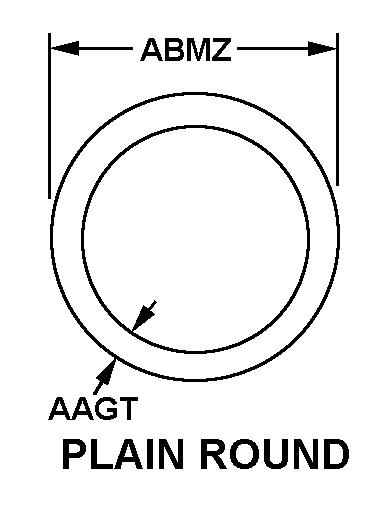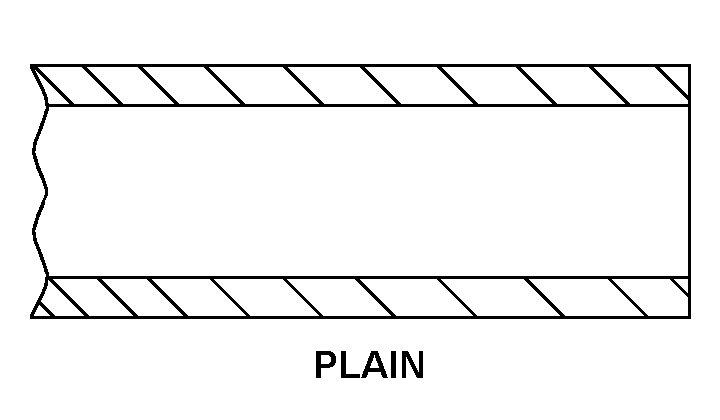4710009261197
Price Quote Get an up to date pricing and availability quote for this product. Order online or over the phone.
Quality Commitment
Serving our customers with quality and safety first.
- AS9120 Certified
- Audited supply chain
- ITAR Registered
- DDTC Registered
- HAZMAT Certified
- Customer service objectives
- Every product 100% inspected

4710-00-926-1197 Specification Set by the OEM (see RNCC code 3)
plain round
0.120in.
plain
0.535in. and 0.540in.
identical
seamless
6000.0 pounds per square inch
zzzx
144.000in. random and 240.000in. random
annealed
copper alloy
astm B111-62, alloy 70-30 assn std single material response
i type and ii grade and 6000 class and 70-30 composition
quality control iaw navships 0948-045-7010 material identification and control instruction for level 1 items
Cross Reference Parts Part numbers that meet the specification outlined on this page and set by the OEM
Identification Item Identification Guide (IIG) and Item Name Code (INC)


Definition Definition of approved item name (AIN): "TUBE,METALLIC"
A straight, hollow product, welded or seamless, of round, square, or any other cross section and continuous periphery, which does not conform in cross sectional dimensions to recognized pipe standards, or those in tables 1 through 10, appendix c, fiig a004a. It is designed to convey fluids, gasses, and/or semisolids. It may be rolled into coils for ease in handling. For items designed to join a tube or tube fitting to another tube, pipe, or hose or fitting, see adapter (as modified); coupling (as modified); or nipple (as modified). Excludes tube, bent (as modified); pipe, metallic; spacer, sleeve; metal bar (hollow); and items with fittings, except end protectors.
4710-00-926-1197 Material Hazmat, Precious Metals, Criticality, Enviroment, and ESD
Indicates there is no data in the hmirs and the nsn is in a fsc not generally suspected of containing hazardous materials.
Precious metal content is unknown
Represents items with no adp components
The item is a non-aviation critical safety item (csi) whose failure will result in serious damage to equipment or serious injury or death to personnel.
Identification Codes
HMIC: Hazardous Material Indicator Code. A one position code that identifies a hazardous item.
PMIC: Precious Metal Indicator Code. A one position code which identifies items that have precious metals as part of their content. precious metals are those metals generally considered to be uncommon, highly valuable, and relatively superior in certain properties such as resistance to corrosion and electrical conductivity.
ESD: Electrostatic Discharge. Indicates if an item is susceptible to electrostatic discharge or electromagnetic interference damage. electrostatic discharge damage occurs when an accumulation of static electricity generated by the relative motion or separation of materials is released to another item by direct contact. electromagnetic interference damage occurs when an item comes into proximity with an electrostatic or magnetic field.
ENAC: Enviromental Attribute Code. Identifies items with environmentally preferred characteristics.
CRITL: Criticality Indicator Code. Indicates an item is technically critical by tolerance, fit, application, nuclear hardness properties, or other characteristics.
Material Management Material categorization and source of supply
Navicp-erp 700 robbins avenue philadelphia, pa 19111-5099
An items that supports either a subsafe or level 1 system that has undergone the extreme material control and quality assurance techniques that provide objective exidence of its acceptance for its appropriate application. each item has certification papers (or special markings that provide traceability to the certification) that pedigree its material and physical properties, provide traceability, to manufacturer, contract list and lot, and document the quality assurance system and test requirements applied to the item.
Material Codes
SOS: Source of Supply. A three position code or routing identifier code (ric), which identifies the source of supply activity.
SMIC: Special Material Indicator Code. A two position code, which categorizes material on the basis of requirements for source or quality control, technical design or configuration control, procurement, stocking and issue control, special receipt, inspection, testing, storage, or handling.
MMAC: Material Management Aggregation Code. A two position code that identifies an item of supply to be managed by a specific activity manager.
MCC: Material Echelon Code. A two position code employed by the marine corps in classifying items into categories by materiel category and procurement echelon. the alphanumeric management code is in the first position and identifies the materiel category
IMC: Denotes wether items shall be subjected to integrated management under the defense supply agency or retained by the individual military service or other department of defense components for their management. Assigned by th activity responsible for item management coding.






